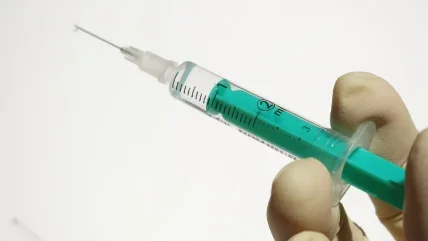
BridgeBio Pharma, a biotechnology company developing genetic diseases, has received the US Food and Drug Administration (FDA) Regenerative Medicine Advanced Therapy (RMAT) designation for BBP-812.
BBP-812 is an investigational intravenous (IV) adeno-associated virus serotype 9 (AAV9) gene therapy indicated for the treatment of Canavan disease.
The US health agency granted RMAT designation for BBP-812 based on the review of 12 months of safety and efficacy data from the Phase 1/2 CANaspire clinical trial.
The Phase ½ study evaluated the safety, tolerability, and pharmacodynamic activity of the investigational drug, in paediatric patients with Canavan disease.
In the study, all participants dosed with BBP-812 showed improvements in functional outcomes in key areas such as head control, sitting upright, grasping objects, and visual tracking.
They have shown reductions in N-acetylaspartate (NAA), both in urine and in the central nervous system, to levels associated with mild disease.
BBP-812 has been well-tolerated, with a safety profile generally consistent with that of other AAV9 gene therapy programmes.
Furthermore, BBP-812 has received orphan drug, rare paediatric disease (RPDD), as well as fast track designations from the FDA, and orphan drug designation from the European Medicines Agency (EMA).
BridgeBio gene therapy CEO Eric David said: “We are honoured to be granted RMAT designation for BBP-812 and are eager to work closely with the FDA and the Canavan community to bring our therapy to families living with Canavan disease as fast as possible.
“We are beyond grateful to the children and their families who are participating in CANaspire, as well as to the study investigators. RMAT will allow us to work more closely with FDA to ensure we are responding to the urgency that families feel.”
In a separate development, BridgeBio has unveiled topline results from the Phase 1/2 ADventure study, investigating its experimental drug BBP-631.
BBP-631 is an investigational adeno-associated virus (AAV) 5 gene therapy, being developed for the treatment of congenital adrenal hyperplasia (CAH).
In the study, all patients who received higher doses of BBP-631 achieved a substantial and durable increase in endogenous cortisol production.
The gene therapy was well tolerated with only mild to moderate treatment-emergent adverse events (TEAEs) and no treatment-related SAEs reported.
Based on the results, BridgeBio plans to stop the BBP-631 development programme for CAH and is actively seeking partnership opportunities to support the future development of the drug.






